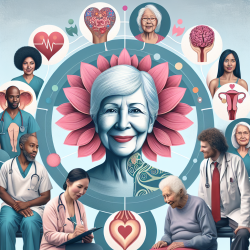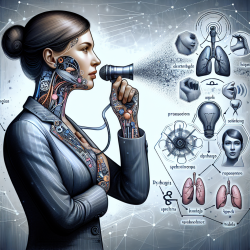Understanding the Biopsychosocial Factors Impacting Older Women's Sexual Health
Sexual desire is a significant component of sexuality at any age, yet it is often overlooked in older women. The research article "Older Women's Sexual Desire Problems: Biopsychosocial Factors Impacting Them and Barriers to Their Clinical Assessment" sheds light on this critical issue. It highlights the need for healthcare practitioners to adopt a holistic approach when addressing the sexual health of older women, considering not just the physiological aspects but also the psychological and social factors.
Key Findings from the Research
The study reveals that inhibited sexual desire is a prevalent issue among older women, with psychosocial factors playing a significant role. It is crucial for practitioners to understand these factors to provide comprehensive care:
- Psychological Factors: Stress, anxiety, and depression are closely linked to sexual desire issues. Addressing mental health can significantly improve sexual health.
- Social Factors: Social norms and lack of privacy can deter older women from engaging in sexual activities. Practitioners should create a supportive environment for open discussions.
- Partner-Specific Factors: The quality of intimate relationships and partner's sexual health significantly influence women's sexual desire.
Barriers to Clinical Assessment
The research identifies several barriers that prevent effective clinical assessment of older women's sexual health:
- Lack of Training: Many healthcare providers lack the training to address sexual health issues, particularly in older women.
- Gender Dynamics: Female patients often feel more comfortable discussing sexual health with female practitioners, highlighting the need for more female healthcare providers in this field.
- Societal Norms: Ageism and stereotypes about older women's sexuality can prevent open discussions in clinical settings.
Recommendations for Practitioners
To improve outcomes for older women, practitioners should:
- Engage in continuous education and training on sexual health issues specific to older women.
- Create a non-judgmental and open environment for discussing sexual health.
- Utilize validated tools like the Decreased Sexual Desire Screener to facilitate conversations.
- Encourage interdisciplinary collaboration to provide holistic care.
By addressing these factors, practitioners can significantly improve the quality of life for older women, ensuring their sexual health is not neglected.
To read the original research paper, please follow this link: Older Women's Sexual Desire Problems: Biopsychosocial Factors Impacting Them and Barriers to Their Clinical Assessment.










